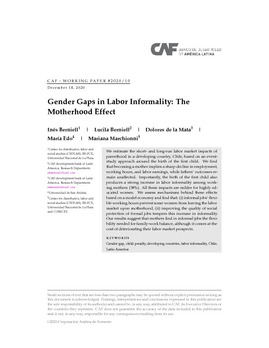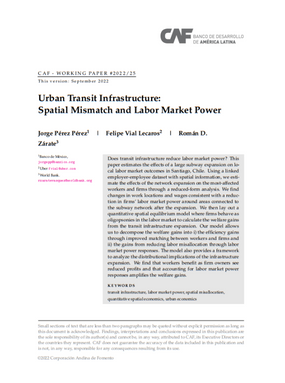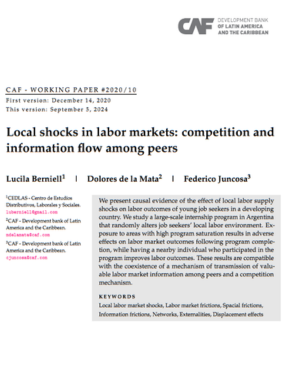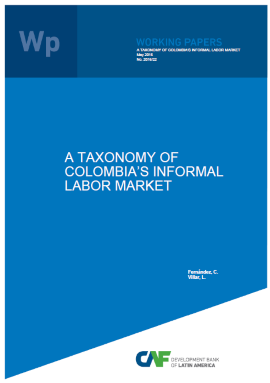Gender Gaps in Labor Informality: The Motherhood Effect
Resumo
We estimate the short- and long-run labor market impacts of parenthood in a developing country, Chile, based on an eventstudy approach around the birth of the first child. We assess mechanisms behind these effects based on a model economy and find that: (i) informal jobs’ flexible working hours prevent some women from leaving the labor market upon motherhood, (ii) improving the quality of social protection of formal jobs tempers this increase in informality. Our results suggest that mothers find in informal jobs the flexibility needed for family-work balance, although it comes at the cost of deteriorating their labor market prospects.
Assunto
País / Región
Data
2020-12-15Cite esta publicação
Item que pertence à coleção
Autor
Berniell, InésBerniell, Lucila
de la Mata, Dolores
Edo, María
Marchionni, Mariana
Items Relacionados
Urban Transit Infrastructure: Spatial Mismatch and Labor Market Power
Does transit infrastructure reduce labor market power? This paper estimates the effects of a large subway expansion on local labor market outcomes in ...
Local shocks in labor markets: competition and information flow among peers
We present causal evidence of the effect of local labor supply shocks on labor outcomes of young job seekers in a developing country. We study a large-scale ...
A Taxonomy of Colombia’s Informal Labor Market
A taxonomy of the informal labor market is extremely important to understand and handle informality, particularly in a country as Colombia where this ...





